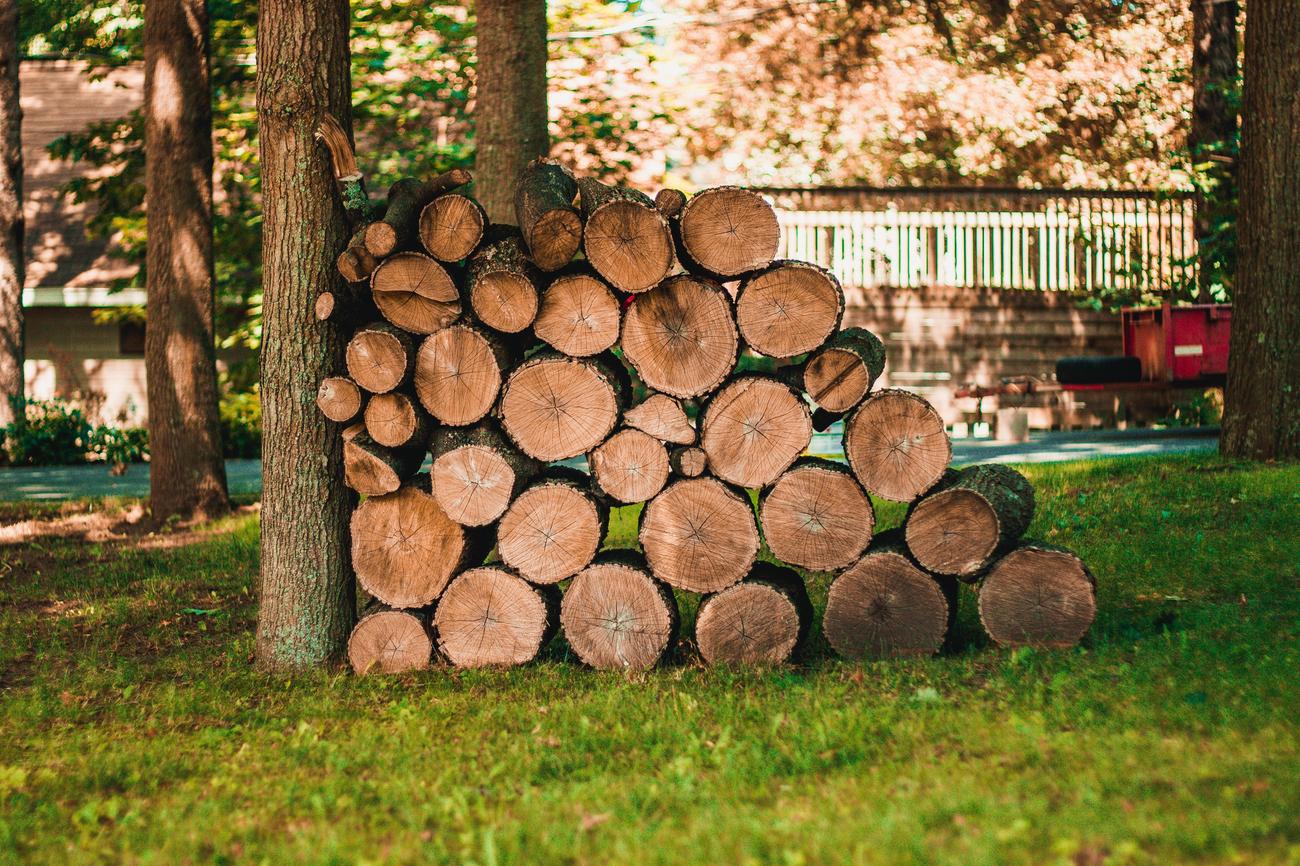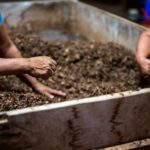In the world of sustainable practices, composting remains a timeless and essential technique for turning organic waste into nutrient-rich soil. But have you ever wondered just how fast compost can be made? In this article, we will delve into the timeline and factors that influence the speed of composting, uncovering the secrets behind this eco-friendly practice. From understanding the biochemical processes involved in decomposition to analyzing various organic materials, we will explore how composting can be efficiently accelerated to meet your soil health improvement goals. So, join us on this journey as we unveil the significance of composting and the factors that contribute to its speedy transformation.

How fast can compost be made?
Composting is a natural process that breaks down organic waste into nutrient-rich soil. But just how fast can compost be made? Let’s explore the timeline and factors that influence the speed of composting.
Factors Affecting Composting Time
Several factors contribute to the speed at which composting occurs. The type and size of organic waste, temperature and moisture conditions, and the presence of earthworms and manure all play a role in the decomposition process.
The type and size of organic waste have a significant impact on composting time. Generally, smaller pieces of waste break down faster than larger ones. Think of it as trying to eat a whole apple versus eating small apple slices. The smaller the pieces, the easier it is for the microorganisms responsible for decomposition to access and break down the material. Organic wastes that are already partially decomposed, like straw or hay, can also compost more quickly.
“The size of the organic waste affects composting time. Smaller pieces decompose faster, just like it’s easier to eat small apple slices compared to a whole apple.”
Moisture and temperature are vital factors in speeding up composting. Microorganisms thrive in moist environments, and an optimal moisture level between 40% to 60% is ideal. Too much water can lead to a soggy pile with poor airflow, while too little water can slow down decomposition. Temperature also plays a role, with microorganisms working more quickly in warmer conditions. In hot composting systems, where temperatures can reach 130°F (55°C) or more, composting can happen at a much faster pace.
“Maintaining the right moisture level and temperature is crucial for speedy composting. Microorganisms need a moist environment, like Goldilocks’ porridge, not too wet and not too dry. And just like you, they work faster when it’s warm.”
Composting Methods and Timelines
Different composting methods have varying timelines for producing finished compost. The Berkeley method, also known as hot composting, is one of the fastest techniques, promising compost in as little as 2 to 3 weeks. This method involves creating a large pile of organic waste and mixing it regularly to provide oxygen for the microorganisms. The high temperatures generated during hot composting help break down materials faster.
“If you’re looking for speed, the Berkeley method is your go-to. It’s like a composting racecar, zooming towards finished compost in just a few weeks.”
On the other hand, cold composting methods take longer because the pile is left to decompose on its own, without actively managing the temperature or turning the pile. Cold composting can take anywhere from 6 to 12 months, depending on the environmental conditions and materials used.
“If you prefer a more relaxed approach, cold composting is like the slow cooker of composting methods. It takes its time, allowing nature to work its magic at a slower pace.”
Tips for Speeding Up Composting
If you want to speed up the composting process, there are several strategies you can employ. Turning the compost pile regularly, especially in hot composting systems, helps provide oxygen and even distribution of heat, promoting faster decomposition. Shredding carbon-rich ingredients, such as leaves or cardboard, increases the surface area available for microorganisms to work on, expediting the breakdown process.
“To turbocharge your compost pile, give it some regular turning action. Just like a good workout, it helps distribute oxygen and heat, giving microorganisms the fuel they need to work faster.”
Maintaining the right balance of materials is also crucial. A good mix of nitrogen-rich “green” materials, like kitchen scraps or grass clippings, and carbon-rich “brown” materials, such as dry leaves or straw, creates an optimal environment for microorganisms to thrive and decompose the organic matter more rapidly.
“Achieving the perfect composting symphony requires the right mix of ingredients. It’s like a recipe for success, with a harmonious blend of nitrogen-rich greens and carbon-rich browns.”
Conclusion
In conclusion, the speed at which compost can be made depends on various factors, including the type and size of organic waste, temperature and moisture conditions, and the composting method used. While composting can take anywhere from two to six months to produce soil-like compost, rapid or “hot” composting can be ready in as little as 14 days with proper management and shredding of materials. Remember, turning the pile regularly, maintaining the right balance of ingredients, and creating favorable moisture and temperature conditions can all help speed up the composting process. So go ahead, start composting, and witness the transformation of waste into nutrient-rich soil to support a vibrant and sustainable garden.
“Composting is a journey, transforming waste into soil gold. With the right ingredients and conditions, you can witness the magic of nature unfold before your eyes. So let’s dive in and start composting today!”
Composting is not only great for the environment, but it’s also filled with fascinating facts that will blow your mind. Did you know that compost can reduce the need for chemical fertilizers and pesticides? It’s true! By creating a nutrient-rich soil amendment, compost naturally enhances plant growth and suppresses diseases. Plus, it helps divert organic waste from landfills, reducing greenhouse gas emissions. If you’re curious to learn more about these fun facts about compost, click here.
How To Make Compost Faster and Easier
[youtube v=”_K25WjjCBuw”]
Factors Affecting Composting Time
Composting is a natural process that involves the decomposition of organic waste into rich, nutrient-dense soil. The time it takes for compost to be ready can vary depending on several factors. These factors include the type and size of organic waste, temperature and moisture conditions, and the presence of earthworms and manure. Smaller pieces of waste decompose faster than larger ones, as they provide a greater surface area for the composting organisms to work on. Moisture levels between 40% to 60% and warm temperatures are ideal for speeding up the composting process.
Different Composting Methods
There are different methods of composting, each with its own timeline for producing finished compost. The Berkeley method, or hot composting, involves creating a large pile of organic materials that reach high temperatures through decomposition. With proper management and turning the pile regularly, finished compost can be produced in just 2 to 3 weeks. On the other hand, cold composting methods, such as simply piling organic waste and allowing it to decompose over time, can take anywhere from 6 to 12 months to produce finished compost.
Tips for Speeding Up Composting
If you’re looking to speed up the composting process and reduce the time it takes to get usable compost, there are several tips you can follow. Regularly turning the compost pile helps to introduce more oxygen, which is essential for decomposition. Shredding carbon-rich ingredients, such as woody materials, can also help to speed up the process by increasing the surface area for decomposition. It’s important to maintain a balance of nitrogen-rich “green” materials, such as grass clippings and kitchen scraps, and carbon-rich “brown” materials, like dried leaves and cardboard.
The Importance of Balance
Achieving the right balance of green and brown materials is crucial for efficient composting. Green materials provide nitrogen, which is essential for the composting process, while brown materials provide carbon. A rough guideline is to aim for roughly equal proportions of green and brown materials, but it’s not necessary to obsess over the exact proportions. The key is to avoid adding too many water-heavy green materials, as they can cause the pile to become dense and soggy. Maintaining a loose and well-aerated compost pile is essential for the decomposition process.
Composting Timeframe
The time it takes to produce finished compost can vary depending on various factors and the composting method used. With proper management and the right balance of ingredients, composting can take anywhere from two to six months. However, with specific techniques like regular turning, shredding, and ensuring favorable moisture and temperature conditions, it’s possible to produce usable compost in as little as 14 days.
Conclusion
Composting is a rewarding and environmentally friendly way to turn organic waste into nutrient-rich soil. By following these tips and techniques, you can speed up the composting process and produce beautifully crumbly compost in a shorter amount of time. Remember to turn the pile regularly, maintain a balance of green and brown materials, and create the ideal moisture and temperature conditions. By doing so, you’ll be able to enjoy quick and easy composting for your garden.

FAQ
Question: How long does it take for compost to fully break down?
Answer: Composting methods vary in the amount of time it takes for compost to fully break down, ranging from a few weeks to a year or two. Factors such as composting method, type and size of organic waste, temperature and moisture conditions, and the presence of earthworms and manure can influence the timeline.
Question: What is the Berkeley method of composting?
Answer: The Berkeley method is one of the fastest ways to compost, promising compost in 2-3 weeks. It involves creating a compost pile with specific ratios of carbon-rich and nitrogen-rich materials, along with regular turning and monitoring of temperature and moisture levels.
Question: How do hot compost systems compare to cold compost systems?
Answer: Hot compost systems provide quicker results compared to cold compost systems. Hot composting involves maintaining higher temperatures within the compost pile, which accelerates the decomposition process. Cold composting, on the other hand, relies on natural decomposition at ambient temperatures and takes longer to break down organic materials.
Question: How can I speed up the composting process?
Answer: Turning the compost pile regularly and shredding carbon-rich ingredients can help speed up the decomposition process. Additionally, maintaining the right balance of materials, managing proper moisture and temperature conditions, and incorporating earthworms and manure can contribute to faster composting.
Question: Which materials can compost within one month?
Answer: Materials that can compost within one month include fallen leaves, hay, straw, paper, and cardboard. These materials are considered to be high in nitrogen or carbon, which facilitates faster decomposition when combined with other organic waste in the compost pile.
- Unlocking Francis Alexander Shields’ Finance Empire: A Comprehensive Biography - July 12, 2025
- Unveiling Francis Alexander Shields: A Business Legacy - July 12, 2025
- Francis Alexander Shields’ Business Career: A Comprehensive Overview - July 12, 2025















